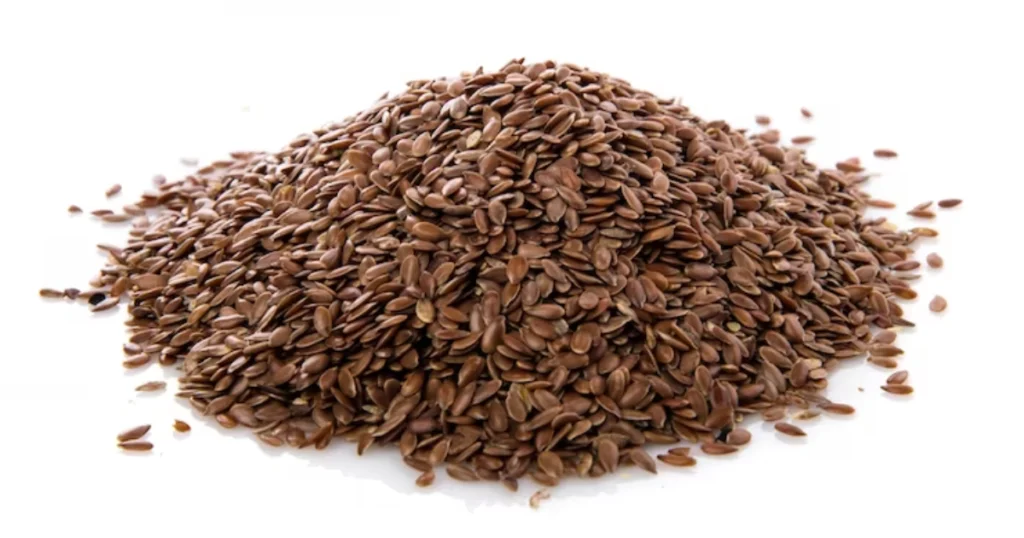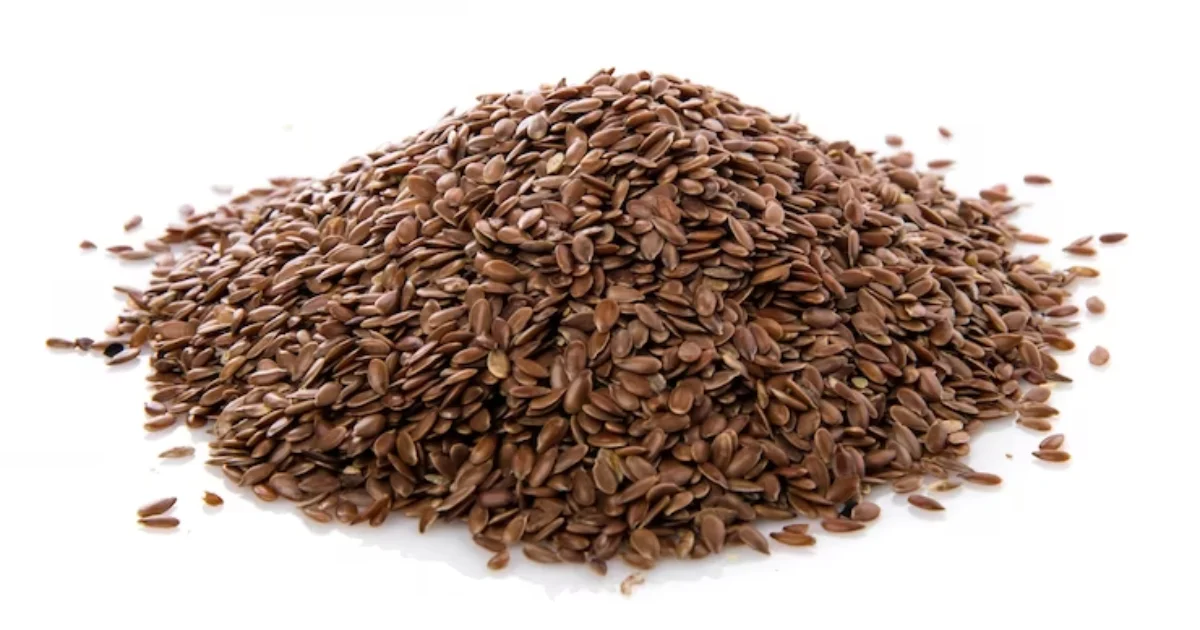Introduction
Flaxseeds have enjoyed a well-deserved reputation as a superfood due to their numerous health benefits. Packed with fiber, omega-3 fatty acids, and lignans—powerful antioxidants with potential anti-cancer properties—these tiny seeds have become a staple in many health-conscious diets. However, it’s essential to remember that even seemingly miraculous foods like It can have their downsides. In this comprehensive guide, we’ll delve deep into the world of flaxseeds, exploring their six side effects in detail while also providing valuable insights on how to safely incorporate them into your diet.

Section 1: The Six Side Effects of Flaxseeds
1. Allergic Reaction
It, like any food, can trigger allergic reactions in some individuals. Allergic symptoms can range from mild to severe and may include hives, swelling, itching, and difficulty breathing. If you experience any of these symptoms after consuming It, it is crucial to cease their consumption immediately and seek medical attention.
2. Slowed Blood Clotting
It are rich in omega-3 fatty acids, which are known to have blood-thinning properties. While this can be beneficial for some, it can pose a problem for individuals who are already on blood-thinning medications or those with bleeding disorders. If you are taking any medication that affects blood clotting, consult your healthcare provider before introducing flaxseeds into your diet.
3. Constipation
Seeds are an excellent source of dietary fiber, which can aid in relieving constipation for many individuals. However, it’s important to strike a balance, as excessive fiber intake can lead to constipation. If you experience constipation after incorporating Seeds into your diet, consider reducing your intake and increasing your fluid consumption.
4. Intestinal Obstruction
A rare but severe side effect of Seeds occurs when they are not properly ground before consumption. Whole Seeds can clump together in the intestines, causing a blockage. To prevent this potentially life-threatening condition, always grind flaxseeds before consumption.
5. Bloating and Gas
Seeds may cause bloating and gas in some individuals, although this is typically a mild and transient side effect. To mitigate these symptoms, consider reducing your flaxseed intake or consuming them alongside other foods.
6. Interaction with Medications
Seeds can interact with specific medications, including blood thinners and diabetes medications. To ensure your safety, consult your healthcare provider before adding flaxseeds to your diet, particularly if you are taking any medications.
7. Safety during pregnancy and lactation
Most people are typically deemed safe to take flaxseeds. Due to potential risks, it is advised to stay away from them when lactating and while pregnant.

To preserve the health of both the mother and the growing foetus throughout pregnancy, food decisions must be carefully considered. Lignans, which are present in flaxseeds, have a negligible estrogenic effect. While lignans are normally safe for the majority of individuals, there is some worry that consuming too much of them while pregnant can affect the hormonal balance that is so important for the growing foetus.
Section 2: How to Safely Consume Flaxseeds
To enjoy the numerous benefits of flaxseeds while minimizing the risk of side effects, follow these expert tips:
1. Grind Flaxseeds
Always grind Seeds before consumption to prevent the risk of intestinal obstruction. Ground Seeds are also more easily digestible, ensuring you can reap the full nutritional benefits.
2. Start Small, Increase Gradually
If you’re new to flaxseeds, start with a small amount and gradually increase your intake. This approach allows your body to acclimate to the fiber content, reducing the likelihood of digestive discomfort.
3. Stay Hydrated
Consuming Seeds can contribute to constipation if not accompanied by sufficient hydration. Ensure you drink plenty of fluids when incorporating Seeds into your diet to maintain optimal digestive health.
4. Consult Your Healthcare Provider
If you have any underlying health conditions or are taking medications, consult your healthcare provider before adding flaxseeds to your daily regimen. They can offer you individualized advice on dose and potential interactions.
Related Post:-
- 7 Health Benefits of Including Magnesium in Your Diet
- The 8 Best Juices for Weight Loss According To Nutritionists
- Herbal Magic: Transform Your Body with the Top 10 Herbs for Effortless Weight Loss
- Nurture Your Hair Loss Post-COVID: 10 Home Remedies for Hair Loss Recovery
Section 3: Additional Information
Here are some additional insights to enhance your understanding of flaxseeds:
1. Whole vs. Ground Flaxseeds
Flaxseeds are available in two primary forms: whole and ground. Whole flaxseeds should always be ground before consumption to unlock their nutritional benefits fully and avoid the risk of intestinal obstruction.
2. Versatile Culinary Uses
Flaxseeds can be seamlessly incorporated into a variety of foods to enhance their nutritional value. Consider adding them to yogurt, oatmeal, cereal, and smoothies for an extra health boost.
3. Flaxseed Oil
Flaxseeds can also be transformed into flaxseed oil, which offers a different culinary application. It can be used in cooking or as a base for salad dressings, providing a healthy dose of omega-3 fatty acids and other beneficial compounds.
Conclusion
Flaxseeds, often hailed as a nutritional powerhouse, offer an array of health benefits. However, as with any food, they can have side effects that need to be considered. Understanding these potential side effects and following the guidelines for safe consumption is key to making the most of flaxseeds’ advantages while minimizing risks. Remember, consulting with your healthcare provider is always a wise decision, especially if you have underlying health conditions or are taking medications. By incorporating flaxseeds responsibly into your diet, you can harness their nutritional prowess to support your overall well-being.
FAQs:-
Does flaxseed have side effects?
Yes, flax seeds do have a few side effects. They include bloating, gas, constipation, stomach aches, diarrhoea, intestinal obstruction, or allergies. However, not everyone will experience these side effects.
What are the benefits of flax seeds?
The lignans and omega-3 fatty acids in flax seeds help reduce blood pressure and prevent overeating. In addition to that, it is good for the skin and hair and has anti-cancer properties. It also contains anti-inflammatory properties and helps you sleep better.
What are the negative side effects of flax seeds?
Adding flaxseed to the diet might increase the number of bowel movements each day. It might also cause side effects such as bloating, gas, stomachache, and nausea.
Who shouldn’t take flaxseed?
Avoid use of flaxseed and flaxseed oil during pregnancy. Occasionally, using flaxseed or flaxseed oil causes an allergic reaction. Don’t eat raw or unripe flaxseeds. Because flaxseed oil might decrease blood clotting, stop using flaxseed oil two weeks before having elective surgery.
Is flaxseed safe for kidneys?
In the kidney, flaxseed oil reduced the renal injury in experimental polycystic kidney disease. It also decreased the C-reactive protein and inflammation in chronic hemodialysis patients

1 thought on “6 Side Effects of Flaxseeds to Beware Of”